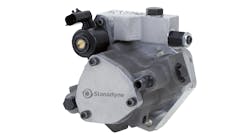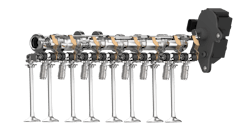Companies have deployed Enterprise Resource Planning (ERP) systems for decades to integrate accounting with business, track raw material purchases, manage EDI, create reports and a for myriad of other tasks. They help organizations effectively coordinate resource planning, management control and operational control.
Like this article? Sign up for our enews blasts by clicking here.
This typically involves the facilitation of information across multiple departments, divisions and locations. A casual observer of business software trends might wonder if ERP systems are still relevant considering the explosion of online, SaaS and other methods of delivering computing power, applications, mass data storage and functionality.
The 2012 AASA Technology Council (ATC) IT Spend & Trends survey provided insight into the positions aftermarket manufacturers hold regarding ERP. Survey participants regard this application as critical to their businesses. ERP implementation or enhancement was the most common initiative on company IT project lists (tied with enhancing Big Data/analytics capabilities). In a separate question, respondents overwhelmingly identified "deploying or upgrading ERP" as the most important project in their lists.
What is driving the continued spend on ERP? One might suggest that a high level of dependency or reliance on these applications is the only reason for its sustained importance. New bolt-on applications and enhanced functionality that inherently comes with new versions probably support ERP’s continued value. Mergers and consolidations, especially those with international elements, may drive its increased use as companies standardize data, systems and processes across all operations and locations. There are, no doubt, several other reasons.
Other data points from the IT Spend & Trends survey support the continued investment in ERP systems. For example, EDI use is projected to increase for the foreseeable future, and ERP systems generally provide the most effective way to integrate EDI transactions with accounting and other business processes.
However, it is interesting that survey participants considered ERP as the least likely "key IT application" to be moved to the cloud environment. This indicates a reluctance to expose the business tool to an external environment either because ERP is embedded in too many areas by numerous disciplines or security concerns are substantial. Either way, ERP generally is viewed as too critical to abdicate complete control of its hosting, support, customization and management.
Anecdotally, I have heard during many conversations with aftermarket supplier technology executives that they struggle to find time to consider how emerging technologies will impact or drive efficiencies for their companies. The most referenced reason for the lack of time available for “Imagineering” (as Disney coined it) is the resource-intensive ERP enhancements or implementations they are undertaking. ERP requires resources, but aftermarket companies should identify individuals and methods for evaluating technology in general they may deploy in the future.
Sophisticated product information management (PIM), CRM, e-commerce, accounting and collaborative applications are critical and enable companies to generate enhanced benefits from ERP packages, but they do not appear to be replacements. ERP software continues to provide the easiest path to integrating systems and data between locations, divisions and even global businesses.
ERP implementation, enhancement and training require significant resources, but the software remains the central business tool tying all major processes and data together.
Subscribe to Aftermarket Business World and receive articles like this every month….absolutely free. Click here.

